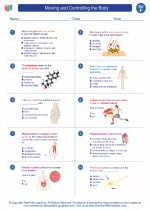Composition in Science
Composition in science refers to the makeup or structure of a substance, material, or object. Understanding the composition of a substance is important in various scientific fields, including chemistry, geology, and materials science. The composition of a substance can provide valuable information about its properties and behavior.
Elements and Compounds
Substances can be classified as elements or compounds based on their composition.
- Elements: Elements are pure substances made up of only one type of atom. They cannot be broken down into simpler substances by chemical means. Examples of elements include oxygen, carbon, and gold.
- Compounds: Compounds are substances composed of two or more elements that are chemically bonded together in fixed proportions. Water (H2O) and carbon dioxide (CO2) are examples of compounds.
Chemical Formulas
Chemical formulas are used to represent the composition of compounds. A chemical formula indicates the types of atoms present and the relative numbers of each type of atom in the compound.
For example, the chemical formula for water is H2O, which indicates that each molecule of water contains two hydrogen atoms and one oxygen atom.
Studying Composition
To study the composition of a substance, scientists use various techniques and instruments, such as spectroscopy, chromatography, and mass spectrometry. These methods allow scientists to analyze the components of a substance and determine their relative amounts.
Understanding composition is essential for fields such as environmental science, where the analysis of air, water, and soil composition helps in assessing the health of ecosystems and the impact of human activities.
Study Guide
When studying the topic of composition in science, consider the following key points:
- Understanding the difference between elements and compounds.
- Learning how to interpret chemical formulas and understand the composition of common compounds.
- Exploring the various techniques and instruments used to analyze the composition of substances.
- Considering the real-world applications of studying composition in fields such as chemistry, geology, and environmental science.
By mastering the concept of composition, you can gain a deeper understanding of the materials and substances that make up the world around us.
.◂Science Worksheets and Study Guides Sixth Grade. Moving and Controlling the Body

 Worksheet/Answer key
Worksheet/Answer key
 Worksheet/Answer key
Worksheet/Answer key
 Vocabulary/Answer key
Vocabulary/Answer key
 Vocabulary/Answer key
Vocabulary/Answer key
 Vocabulary/Answer key
Vocabulary/Answer key
